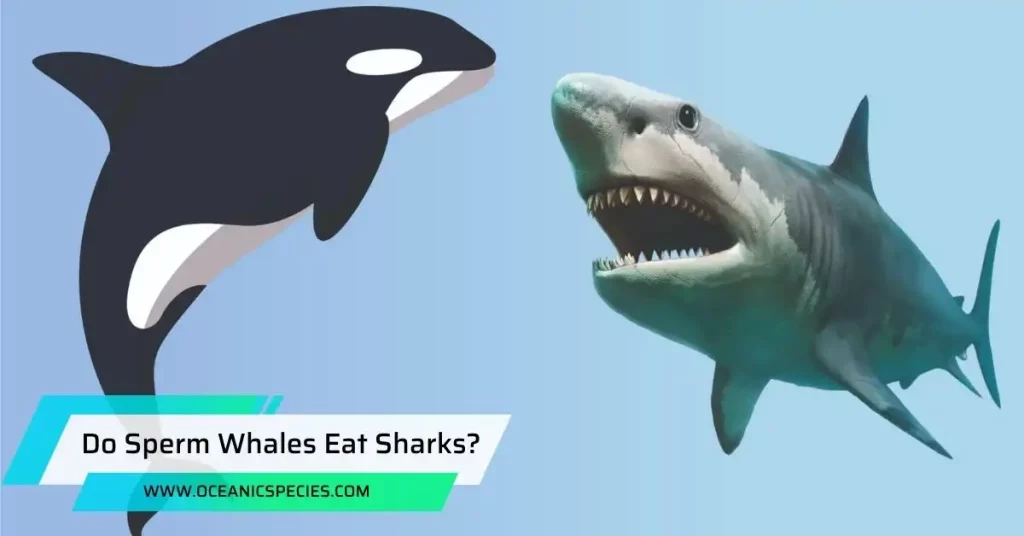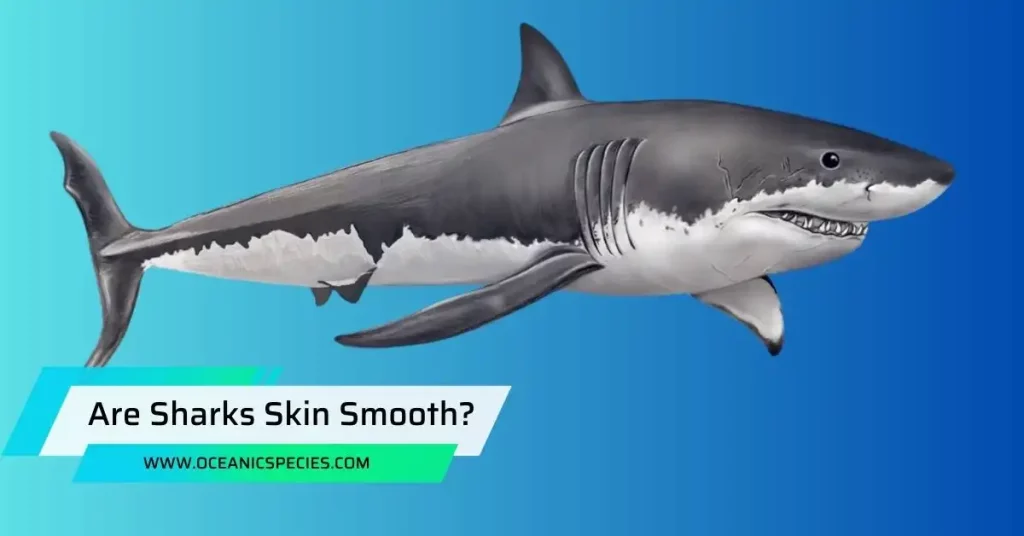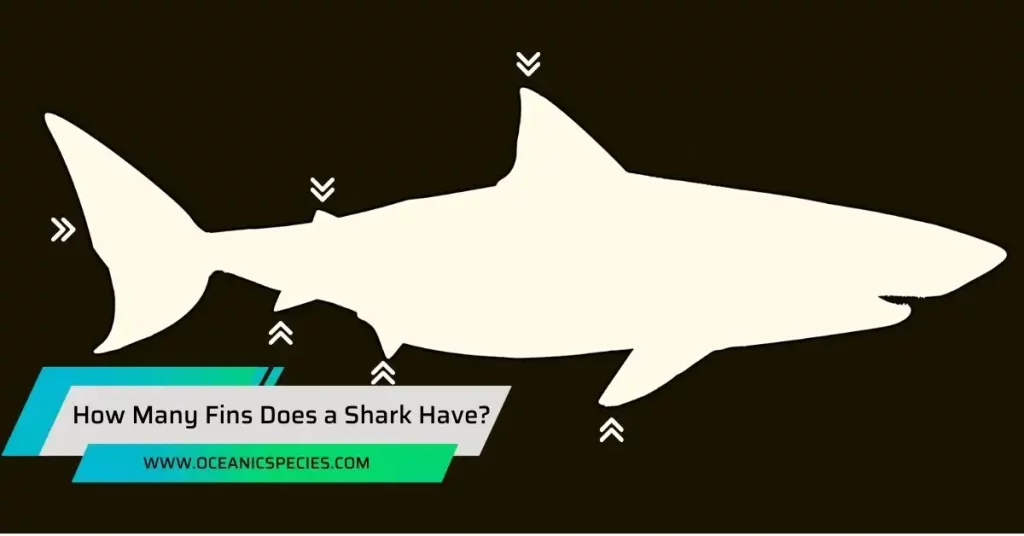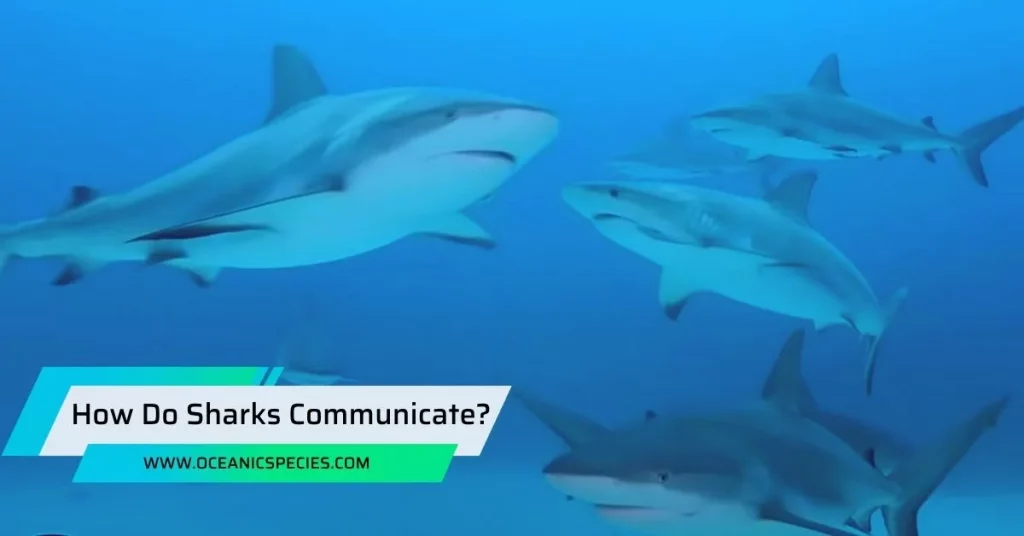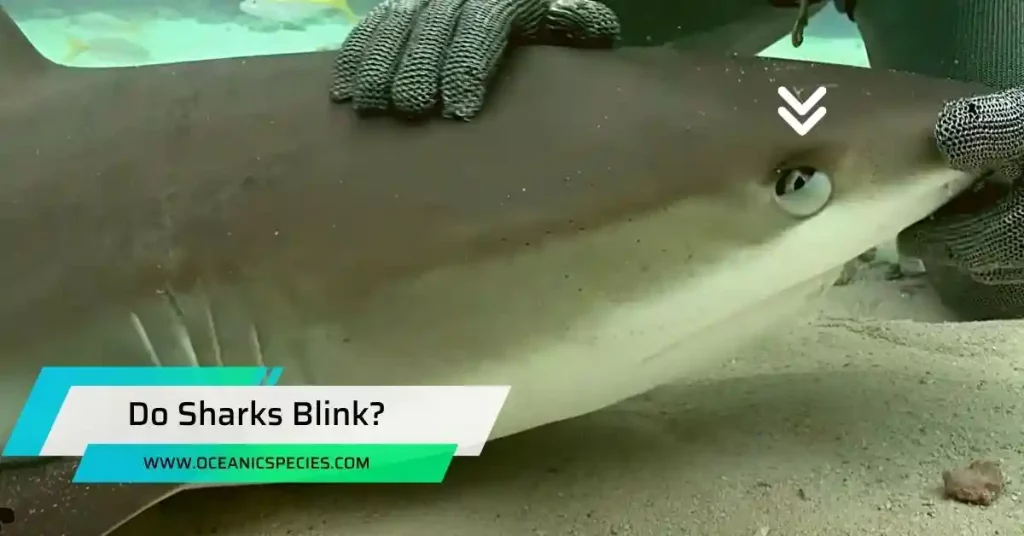Sperm whales do not eat sharks. Sperm whales have a diverse diet, but sharks are not typically on their menu.
These enormous creatures primarily feed on squid and fish, using their huge teeth to catch and consume their prey. With a diet that consists mainly of deep-sea creatures, including giant squid, it is rare for sperm whales to encounter sharks.
They are known for their incredible diving abilities, descending to great depths to find their preferred prey. Despite their massive size, sperm whales are graceful hunters and use their echolocation skills to locate food in the ocean depths. Their diet is an essential part of their survival and allows them to thrive in the world’s oceans.
Understanding The Predatory Behavior Of Sperm Whales

Sperm whales are known to have a predatory behavior, but whether they eat sharks or not is a subject of interest. These massive creatures primarily feed on squids, but they have been observed preying on sharks on rare occasions, making their diet versatile and intriguing.
The Predatory Nature Of Sperm Whales:

Sperm whales are formidable predators, often targeting large and powerful prey species. Here are some key aspects of their predatory behavior:
- Deep-sea hunters: Sperm whales are known to dive to great depths in search of prey. They can descend to depths of up to 3,000 feet, allowing them to seek out a variety of food sources in the ocean depths.
- Ambush predators: These whales employ a stealthy hunting strategy. They lie in wait patiently, lurking in the depths, and then surprise their prey by lunging upwards with incredible speed. Their powerful jaws and rows of sharp teeth help them secure their meal.
- Cooperative hunting: Sperm whales are highly social creatures. They often hunt in groups called pods, cooperating with one another to increase their chances of success. When targeting larger prey, such as sharks, their coordinated efforts are vital.
Unique Hunting Techniques Of Sperm Whales:

Sperm whales have developed specialized techniques to catch their prey. Here are some notable tactics they employ:
- Echo-location: Sperm whales possess a unique ability to use echolocation to locate their prey in the vast ocean. They emit a series of clicks and interpret the echoes that bounce back, allowing them to accurately pinpoint their target.
- Phonic lips: These whales have a distinctive feature called phonic lips, which allows them to produce powerful clicks. These clicks can travel for long distances through the water, aiding their navigation and prey detection.
- Suction feeding: Sperm whales have a specialized feeding method known as suction feeding. Once they locate their prey, they create a powerful suction by rapidly retracting their tongue. This enables them to draw their prey into their mouths with force.
A Deep Dive Into The Diet Of Sperm Whales
Discovering the feeding habits of sperm whales, researchers investigate if these massive creatures include sharks in their diet. Explore the intriguing relationship between sperm whales and sharks in this deep dive.
The Diverse Prey Of Sperm Whales
The diet of sperm whales is far from monotonous. These apex predators have a wide range of prey, which includes but is not limited to:

- Squid: Sperm whales are well-known for their ability to hunt and consume various species of squid. They have specialized teeth and a powerful suction technique that aids in capturing and consuming these slippery cephalopods.
- Fish: While squid constitute a significant portion of their diet, sperm whales also feed on different types of fish. Some of their preferred fish species include hake, herring, and mackerel.
- Giant and Colossal Squid: Sperm whales have been known to target the colossal squid, which is one of the largest invertebrates on the planet. These epic battles between the whales and the massive squid have captivated researchers for years.
- Sharks: Contrary to popular belief, sperm whales do not actively hunt and eat sharks as a staple food source. While there have been recorded instances of sperm whales consuming sharks, it is more likely to occur as a result of opportunistic feeding rather than a deliberate pursuit.
Analysis Of Sperm Whales’ Feeding Habits

To gain a deeper understanding of sperm whales’ feeding habits, it is crucial to consider the following aspects:
- Deep Diving: Sperm whales are exceptional divers, capable of descending to impressive depths in search of food. They can dive to depths exceeding 3,280 feet, spending extended periods underwater while foraging for their prey.
- Echolocation: Sperm whales utilize echolocation, a sophisticated sonar system, to locate their prey effectively. This mechanism allows them to navigate and hunt in the darkness of the ocean depths, honing in on their preferred targets.
- Cooperative Hunting: Sperm whales often exhibit cooperation while hunting, which is especially true when targeting larger prey such as squid. These cooperative hunting strategies can include herding prey into tight groups, making it easier for the whales to capture their meal.
- Feeding Preferences: The feeding habits of sperm whales can vary across different regions and populations. While some groups predominantly focus on squid, others may rely more heavily on fish. This variation highlights the adaptability and resourcefulness of these magnificent creatures.
Debunking The Myth: Do Sperm Whales Consume Sharks?
Sperm whales are not known to consume sharks, contrary to popular belief. These majestic creatures primarily feed on squid and fish, using their large jaws to swallow their prey whole. The idea that sperm whales prey on sharks is a myth that has been debunked.
Do Sperm Whales Eat Sharks?

Sperm whales and sharks are two fascinating creatures of the deep sea. With their enormous sizes and powerful capabilities, it’s natural to wonder about their interactions and whether sperm whales consume sharks. In this blog post, we will debunk the myth and explore the relationship between sperm whales and sharks.
Exploring The Relationship Between Sperm Whales And Sharks
Sperm whales and sharks coexist in the same oceanic habitats, but their relationship is not as predator and prey. Here’s what you need to know:
- Sperm whales primarily feed on squid: These magnificent marine mammals have a diet that mainly consists of giant squid. They have specialized teeth called “spermaceti” that enable them to catch and consume these cephalopods. Squid make up the majority of their diet, accounting for about 80% of what they eat.
- Sharks are not a staple in a sperm whale’s diet: While sperm whales have the capability to consume a variety of marine life, sharks are not a prominent part of their menu. Sperm whales have been found to have remnants of small sharks in their stomachs on rare occasions, but this should not be mistaken as a regular occurrence or a significant portion of their diet.
- Deep-sea scavenging: Sperm whales are known to engage in deep-sea scavenging, where they feed on dead or dying organisms that sink to the ocean floor. Sharks that have perished or are in a deteriorating state may be encountered during these scavenging activities, leading to occasional interactions between the two species.
Examining Instances Of Sperm Whale And Shark Interactions
While sperm whales and sharks generally do not have a predator-prey relationship, there have been documented instances of interactions between these creatures. Here are some notable observations:
- Coping with shark attacks: Sperm whales have been observed defending themselves against shark attacks. Their sheer size, powerful tails, and the presence of a social group called pods, provide a level of protection against sharks. Sperm whales will fiercely retaliate by striking the attacking shark with their tails, sometimes causing lethal injuries to the predator.
- Markings of shark encounters: Occasionally, scientists have discovered scars and markings on sperm whales’ bodies that suggest past encounters with sharks. These scars serve as evidence of previous skirmishes, highlighting the robustness and resilience of sperm whales.
- Mutual avoidance: In many cases, sperm whales and sharks tend to avoid each other. Different species have evolved unique hunting strategies and occupy different depths within the oceans, reducing the likelihood of direct encounters. This avoidance behavior contributes to the limited interactions between sperm whales and sharks.
Unveiling The Predatory Power Of Sperm Whales
Sperm whales, known for their immense size and predatory nature, are indeed capable of eating sharks. These powerful giants have been observed hunting and devouring various shark species, revealing their impressive dominance in the deep ocean.
How Sperm Whales Tackle Their Prey:
- Echolocation: Sperm whales use echolocation, a biological sonar system, to locate their prey. By emitting high-frequency clicks and analyzing the echoes that bounce back, they can precisely pinpoint their target in the vast ocean depths.
- Deep Dives: Equipped with impressive diving abilities, sperm whales are capable of diving to incredible depths in search of food. They can descend as far as 3,000 feet and hold their breath for up to 90 minutes, allowing them to pursue elusive prey in the abyssal realms.
- Giant Squid Confrontations: One of the most astonishing aspects of sperm whale predation is their formidable encounters with giant squid. These mythical creatures, known for their colossal size, engage in captivating battles with sperm whales. These encounters can leave scars and marks on the whales’ bodies, evidence of their skills in taking on such formidable adversaries.
- Suction Feeding: When hunting smaller prey, such as fish or cephalopods, sperm whales employ a feeding technique called suction feeding. This involves opening their colossal mouths and engulfing vast amounts of water, along with their prey. The water is then expelled through the baleen plates, leaving the captured prey behind to be swallowed.
The Impact Of Sperm Whales On Ocean Ecosystems:

- Marine Food Chain: Sperm whales play a crucial role in regulating the population of their prey species, which include various types of fish and squid. By hunting these animals, sperm whales help maintain balance within the marine food chain, preventing overpopulation and ensuring the health and stability of ocean ecosystems.
- Nutrient Recycling: Through their feeding habits, sperm whales also contribute to nutrient recycling in the ocean. As they consume prey, the whales release fecal plumes containing vital nutrients, such as iron and nitrogen, into the water. These nutrients support the growth of phytoplankton, which in turn forms the base of the marine food web.
- Carbon Sequestration: The actions of sperm whales extend beyond mere hunting and feeding. Their massive bodies are capable of storing significant amounts of carbon, contributing to the sequestration of this greenhouse gas. This process plays a small but significant role in mitigating the impacts of climate change.
- Biodiversity Hotspots: Areas where sperm whales congregate, such as certain oceanic regions and deep-sea canyons, become biodiversity hotspots. These locations provide habitats for a wide range of marine species and support a complex web of life. Protecting the habitats of sperm whales indirectly safeguards the biodiversity of numerous other organisms.
The Apex Predator Of The Ocean: The Role Of Sperm Whales
Sperm whales, known as the apex predator of the ocean, play a vital role in maintaining the balance of marine ecosystems. While their primary diet consists of giant squid, they do occasionally consume sharks, acting as top hunters in their underwater domain.
Let’s explore why sperm whales are considered the titans of the deep sea.
Sperm Whales As Keystone Species
Sperm whales hold the position of a keystone species, meaning their presence strongly influences the structure and function of the surrounding ecosystem. They exert their influence through various mechanisms, including:
- Feeding Habits: Sperm whales primarily consume squid, including colossal squid and giant squid. By regulating the population of these cephalopods, sperm whales indirectly control the abundance of their prey and prevent overpopulation.
- Controlling Predator Populations: While sperm whales predominantly feast on squid, they also consume other marine organisms, including sharks. By limiting the numbers of predators like sharks, sperm whales help maintain the balance between predator and prey populations.
- Cross-Trophic-Level Effects: Sperm whales’ feeding habits result in a cascade of effects across different trophic levels of the food chain. Their consumption of squid forces these prey species to adapt and evolve, ultimately altering the dynamics of their own food sources.
- Nutrient Distribution: Sperm whales contribute to nutrient distribution in the ocean. When they excrete fecal matter rich in iron and nitrogen, it stimulates the growth of phytoplankton. Increased phytoplankton production sustains a healthy ecosystem by providing food for numerous organisms.
Sperm Whales’ Influence On Ocean Food Chains

The role of sperm whales within ocean food chains is intricate and multi-faceted. Here are the key ways in which they shape the marine ecosystem:
- Top-Down Control: As apex predators, sperm whales regulate the population sizes of their prey. This regulatory function prevents certain species from becoming dominant and maintains biodiversity within the food web.
- Energy Transfer: Sperm whales consume large amounts of energy-rich prey, such as squid, which are essential sources of nutrients. This energy is then transferred to other organisms when the whales excrete waste or become prey themselves.
- Ecosystem Resilience: The presence of sperm whales can enhance the resiliency of ecosystems by promoting stability and mitigating potential disruptions caused by imbalances in predator-prey relationships.
- Species Interactions: Through their influence on prey populations, sperm whales indirectly affect the behavior and distribution of other species within the ecosystem. This, in turn, influences the intricate network of species interactions in the ocean.
Protecting The Ocean’S Predatory Powerhouse
Sperm whales, the ocean’s formidable predators, have been observed hunting and devouring sharks, showcasing their powerful and versatile feeding capabilities. These marine giants play a crucial role in maintaining the balance of the underwater ecosystem.
Conservation Efforts For Sperm Whales:
- Collaboration with marine conservation organizations: Multiple organizations, such as the International Fund for Animal Welfare and the World Wildlife Fund, have joined forces to support the conservation of sperm whales. Through research initiatives and lobbying for protective measures, their collective efforts aim to ensure the survival of these marine giants.
- Implementation of fishing regulations: Unregulated and destructive fishing practices pose a threat to the survival of sperm whales. By enforcing fishing regulations, such as the use of sustainable fishing gear and protected areas, we can minimize the unintentional entanglement of sperm whales in fishing gear, safeguarding their population and predatory ability.
- Reduction of ocean pollution: Human activities, such as oil spills and plastic pollution, have devastating consequences for marine life, including sperm whales. Initiatives focusing on reducing marine pollution and encouraging responsible waste disposal are essential for safeguarding the oceans and the thriving ecosystem that sperm whales rely on.
- Establishment of marine protected areas: Creating marine protected areas (MPAs) ensures the preservation of critical habitats for sperm whales. These designated areas provide a safe space for their feeding and breeding activities, allowing them to carry out their important ecological role undisturbed.
Ensuring The Future Of Sperm Whales’ Predatory Ability:
- Promoting research and education: Conducting thorough research enables us to better understand the behavior, migration patterns, and feeding habits of sperm whales. By promoting ongoing research initiatives and educating the public about the importance of these magnificent creatures, we can generate awareness and support for their conservation.
- Encouraging responsible whale-watching practices: Whale-watching can offer valuable insights into the behavior of sperm whales, while also serving as an ecotourism opportunity. However, it is crucial to promote responsible and sustainable whale-watching practices to minimize disturbance and habitat degradation.
- International cooperation and legislation: Collaborating with different nations to establish and enforce international agreements for protecting sperm whales is fundamental. Through the development of legislation and policies, we can ensure consistent conservation efforts are in place across borders, securing the future of the ocean’s predatory powerhouse.
Frequently Asked Questions
Can Sperm Whales Eat Orcas?
Yes, sperm whales can eat orcas. Sperm whales are known to prey on various marine animals, including squid and fish. While orcas are highly intelligent and skilled predators themselves, they can still be considered as potential prey for sperm whales due to their relatively smaller size compared to a fully grown sperm whale.
However, it is important to note that interactions between these two species are rarely observed, and instances of sperm whales preying on orcas are quite rare. The diet of a sperm whale mainly consists of deep-sea squids, and they are believed to primarily target these creatures for their sustenance.
Nonetheless, in certain situations, a sperm whale might perceive an orca as potential prey and initiate an attack. Overall, while it is possible for sperm whales to eat orcas, such interactions are uncommon.
What Type Of Whales Eat Sharks?
Some types of whales, such as the killer whale or orca, are known to eat sharks. Killer whales are powerful predators that have been observed hunting and devouring different species of sharks. They are intelligent and strategic hunters, working together in groups called pods to ambush and catch their prey.
Other species of whales, like sperm whales, may also consume sharks as part of their diet. These large cetaceans have large energy demands and consume a diverse range of prey, including squid, fish, and even other marine mammals like seals and dolphins.
Sharks are included in their menu, but it’s important to note that not all whale species eat sharks. It is primarily the killer whales that have gained a reputation for hunting and eating these apex predators of the ocean.
What Eats Sperm Whale?
Sperm whales have few natural predators due to their large size and depth-dwelling habits. Their main predator is the killer whale, or orca. These highly intelligent and social creatures occasionally target and prey on sperm whales. Orcas use their teamwork and strategic hunting techniques to overpower and kill the vulnerable sperm whale.
Aside from orcas, large sharks may also attack and feed on sperm whales, but these interactions are rare. The sheer size and strength of the sperm whale make it a formidable opponent, and few creatures in the ocean can successfully prey on them.
Sperm whales primarily survive through their ability to dive to extreme depths to hunt for their preferred prey of squid and fish.
Conclusion
The question of whether sperm whales eat sharks has been a topic of curiosity and debate among marine enthusiasts. Through extensive research and observations, scientists have discovered that although sperm whales are capable of hunting and consuming a variety of prey, including giant squid and fish, there is limited evidence to suggest that they actively seek out and devour sharks.
The primary diet of sperm whales consists primarily of squid, with some species of fish also making up a smaller portion of their food intake. While occasional encounters between sperm whales and sharks have been documented, it is typically a case of accidental interaction rather than intentional predation.

